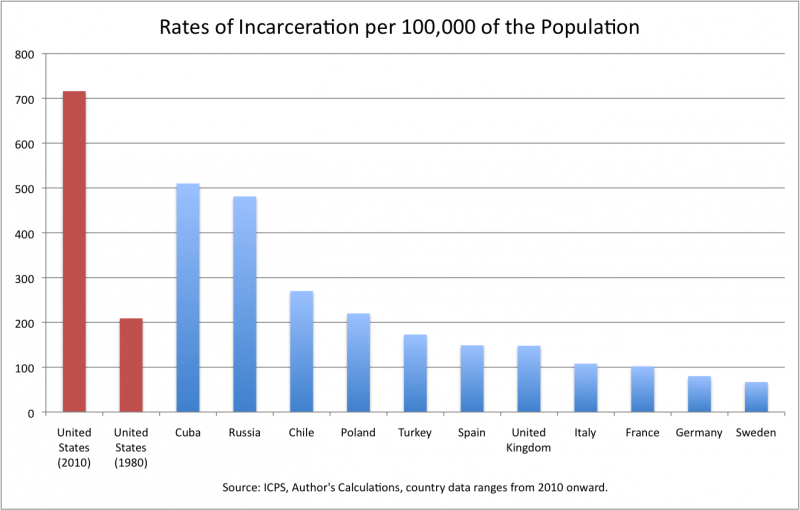The Journey of Redemption 
I’ve found in my journey of redemption that I don’t necessary sin egregiously in every category. Rather I’ve found I often keep struggling with the same two or three sins that seem to go all the way down to my core.
Every time I think I’m done with that sin God will gently tear off the Band-Aid and reveal just how bad the infection is. Over and over again this process goes on.
On a different level, this is true of our American society when it comes to race.
The Reality of Race
It seems that majority (white) people are often tired of talking about race (just like we are tired of dealing with that pesky sin of ours). This is especially true of white evangelicals, where 69% think that the best way to improve race relations is to stop talking about race! It is as if we as a society think that because we acknowledge racism that we can now move on to our other sins.
But I would say this is probably one of the two core sins of our American society, and there is not easy movement beyond it.
And are we really working on it anyway? Or just managing it, like we manage having a short temper or indulging in too much dessert?
Aren’t we just managing “racism” when every so often we acknowledge the need for a “national debate”, or that those “real racists” need to be punished, or that perhaps the police are a little harsh on minorities, but never diving in to see how deep the sin goes?
These questions and concerns have directed me toward a book by Michelle Alexander called The New Jim Crow: Mass Incarceration in the Age of Colorblindness.
This book rips off the Band-Aid and shows how and why the problem of racism persists in a post-Civil Rights era of colorblindness.
The Questions
As any good pastor would, this books asks deeper and different questions about our sin, overlooking the “obvious” as it searches for the true causes.
For instance,
- Why did the “War on Drugs” begin in 1982 (by Reagan) when drug use was on the decline, not considered a national problem, and a good 2-3 years before crack cocaine became broadly available in major US cities?
(Anybody remember this add?)
- Or, why does America have the largest incarceration rate of the “free world?

And more specifically,
- Why is that when people of all racial backgrounds use and sell illegals drugs at a similar rate, that people of color are disproportionately imprisoned for drug crimes?
- Why does America imprison a larger percentage of its black population the South Africa did at the height of apartheid?
Notice the drift of these questions?
This is about our criminal justice system, not the proclivity of racial stereotyping by people or racial slurs spoken in the parlors.
Alexander’s questions seek to reveal the links between a new form of racism and our criminal justice institutions, forged through what has become known as the War on Drugs (all that is for the next post).
The Plan
So I’m going to spend the next couple of weeks reading through Michelle Alexander’s book and posting about it (mostly for myself but also in the hopes it will provoke some conversation among those who have and haven’t read it yet…acknowledging I’m a late comer to the party as the book came out four years ago).
In the next post we’ll look at her what she means when she says,
“We have not ended racial caste in America; we have merely redesigned it.”


7 replies on “Deeper than We Thought (1): Our Society’s Sin”
Geoff this is good stuff. I affirm all of it. Yet I want share an angst I have with this.
I have some frustration with observing how this new awareness actualizes on the ground. I am surrounded by people in my post-evangelical city that I love who are rabid about addressing white privileged who’ve devoured books, higher ed classes and frequent blogs that have formed a new passionate position. Their social awareness related to racism is off the charts. But it embodies merely a new political position. When I inspect their lives very few of them are forming real-time relationships with POC in their neighborhood, very few of them are sitting, listening and sharing a cup of coffee with black leaders. It often doesn’t move to a new posture in a place, it stays compartmentalized to a political position. I was part of an activist-y tribe around issues of reconciliation 10 years ago in Brooklyn. So few of my friends ten years later are embodying a multicultural life that surrenders power. I’m all for reading and sharing but it too quickly moves to a self-righteous know-it-all place that fools are sub-conscience into believing we practice because we think differently.
My own learning curve on this has been to zip my lip about “what i know” and meet weekly with POC leaders to learn and submit. Now I’m the one that sounds self-righteous :).
Something is broken with how our awareness is extracted from local embodied practice. This issues is too awful to leave to constant public ruminating.
I’m prone to suggest a moratorium on white people that calls us to “not let your left hand know what your right hand is doing, so that your work will be in secret; and your Father who sees what is done in secret”.
Just my frustrated thoughts on the matter.
Peace friend.
danwhitejr Dan, great warning. I definitely agree with how we (white males) can “learn” a bunch of stuff and then think this means real change has happened. Patently this is not true, and as you say the we need to be continually forging friendships with people of color as much as possible.
The reason I’m reading this book is exactly because my African American students said that I needed to, and I’m blogging about it because when I write I really learn and remember what I’m reading.
But I hope by the end of the book that I, and you, and others can come to a place and a committment about how, as a local church, we can move forward on these issues.
also, I tweeted out this article earlier to day, which is germane: “Turn On, Retweet, Tune Out” http://t.co/OL7ryYalUz
geoffholsclaw danwhitejr thanks for the response Geoff.
I think lately I’m just making some observations on viral-culture versus embodied-culture as it relates to all justice issues.
keep up the learning and good work.
danwhitejr geoffholsclaw Yup. I’m seeing what you are seeing.
[…] Two weeks ago I talked about how in my journey of sanctification I seem to be really working only on two or so deeply ingrained sins that seem to keep popping up in different ways. Just when I think I have gotten over it I find it sprouting up again: instead of the fruit of the Spirit, these are the weeds of the flesh, and they are hard to pull out. […]
[…] my Michael Brown, Tupac and God. Also see Geoff Holsclaw’s new series Deeper Than We Thought Part 1 and Part […]
[…] DEEPER THAN WE THOUGHT (1): OUR SOCIETY’S SIN […]